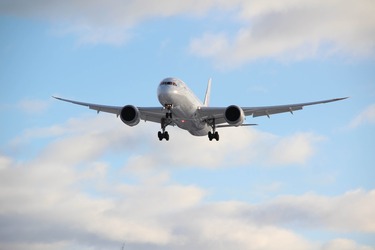
Can an undocumented immigrant fly within the U.S. in 2025? Yes, they may be able to, but that does not mean the process isn’t fraught with potential pitfalls and some danger.
In general, domestic travel involves requests for official identification and contact with agents of the federal government. This means that air travel presents opportunities for an undocumented immigrant to be apprehended by federal officials.
All travelers on domestic flights must present a valid, unexpired photo ID issued by the state or federal government. TSA accepts state photo identification cards and state driver’s licenses as identification for undocumented individuals.
So, if you do not have permanent resident status or a valid visa, and you plan to travel around the U.S. by plane, you should speak with an experienced immigration attorney before you set foot in an airport.
At EMP Law, we have over 140 years of combined experience, and our experienced Winston-Salem and Charlotte immigration attorneys are at the top of their field. We are ready to take your call and find the perfect solution for you.
Get started today by calling (336) 724-2828 or filling out our online form.
Do You Have the Right Identification for Boarding a Flight?
Although the law generally does not forbid the travel of undocumented immigrants between the states, identification regulations that affect everyone might block some undocumented immigrants from flying.
The U.S. Transportation Security Administration (TSA) requires that every traveler over 18 present valid identification to a TSA agent before boarding a plane. Valid identification may include a driver’s license, a foreign government-issued passport, a U.S. passport, or another type of government-issued identification with a photograph of you that the federal government has approved for use in flights.
If you do not have documents that prove that you are legally in the country, you might not be able to clear the necessary security checks for flying. However, if you are an undocumented immigrant with a valid passport from your home country or a valid driver’s license, there is a good chance you can get on a plane without issues.
The REAL ID Act
The REAL ID Act, passed by Congress in 2005, establishes standards for state-issued driver’s licenses and identification cards. As of May 7, 2025, the Transportation Security Administration (TSA) has started implementing a requirement that all travelers aged 18 and older must present a REAL ID-compliant license or another acceptable form of identification to be allowed to board domestic flights.
To obtain a REAL ID, applicants must provide:
- Proof of identity (e.g., birth certificate or passport),
- Full legal name,
- Date of birth,
- Proof of Social Security number,
- Two proofs of residency, and
- Evidence of lawful status in the U.S.
These requirements make it impossible for undocumented immigrants to obtain a REAL ID unless they use fraudulent documents. As of May 7, 2025, the TSA has begun full enforcement of REAL ID requirements. It may delay travelers until they provide valid identification or refuse to let travelers board flights if they cannot.
State-Issued Driver’s Licenses and the REAL ID Act
Currently, the District of Columbia, Puerto Rico, and 16 states allow undocumented individuals to obtain driver’s licenses. Yet, because the REAL ID Act requires the applicant to provide proof of good status before states may issue driver’s licenses that are REAL ID compliant, a state-issued driver’s license issued to an undocumented person will not meet REAL ID standards. As a result, state-issued driver’s licenses are no longer a valid identification option for an undocumented person traveling by air.
The states that issue driver’s licenses to undocumented immigrants typically mark those licenses as not for federal purposes in some way, since they do not and cannot meet the requirements of the REAL ID Act.
Acceptable Identification for TSA Checkpoints
While undocumented immigrants cannot obtain a REAL ID, the TSA accepts several alternative forms of identification for domestic flights, including:
- Valid and unexpired foreign passports,
- Employment Authorization Documents (EADs), and
- Certain documents issued by the Department of Homeland Security (DHS) at the discretion of TSA officers.
Generally, a document issued by a foreign government or the federal U.S. government with a photo ID will work.
Risks and Considerations
If you need to travel and want to weigh your options, consider that traveling by air as an undocumented immigrant currently carries risks, including:
- Increased scrutiny. Presenting foreign passports or DHS-issued documents may lead to additional questioning or secondary screening.
- Potential encounters with immigration authorities. Airports are federal facilities, and interactions with TSA or other federal agents could lead to immigration status inquiries.
- Variability in TSA officer discretion. Acceptance of certain documents may vary by airport or individual TSA officer, leading to inconsistent experiences.
Given the complexities of air travel, undocumented immigrants may consider alternative modes of transportation, like:
- Bus travel,
- Train travel, or
- Driving.
Notably, some states, like Florida, have enacted laws declaring that non-REAL ID compliant, state-issued driver’s licenses are not valid to prove someone is a licensed driver within their borders. An undocumented person with a state-issued license who drives in a state with such a law may face legal complications if they are pulled over.
What Happens if ICE Stops You During Domestic Travel?
If you are undocumented or have an uncertain immigration status, traveling within the United States can be stressful, especially with the risk of encountering U.S. Immigration and Customs Enforcement (ICE). While ICE does not typically operate TSA checkpoints, they are known to conduct enforcement actions at bus stations, train stations, and airports, particularly near border regions or major transportation hubs.
So, what happens if ICE stops you during domestic travel? More importantly, what can you do to protect yourself and your rights?
Where Can ICE Stop You?
ICE primarily operates in border zones, which are the land within 100 miles of any U.S. border, where ICE and Customs and Border Protection (CBP) agents have expanded authority.
ICE has been known to perform random checks at transportation hubs:
- Bus terminals (e.g., Greyhound),
- Amtrak stations, and
- Major airports.
Unlike local police, ICE agents focus specifically on immigration enforcement. They may approach you at a terminal, on a platform, or even during a bus ride.
Do You Have to Answer ICE’s Questions?
If an ICE agent stops you, they may ask questions like:
- Where were you born?
- Are you a U.S. citizen?
- Do you have documents to prove legal status?
You have the right to remain silent. ICE agents may attempt to search your bags or electronic devices. You can refuse consent, but you should never physically resist, as this could lead to arrest or charges. If ICE takes your phone or tries to unlock it without your permission, ask for a lawyer immediately and remain silent.
Contact An Experienced Immigration Attorney Before You Fly
Before making travel plans, undocumented individuals should consult with an experienced immigration attorney who can assess their specific situation and provide tailored advice. At EMP Law, our teams in Winston-Salem and Charlotte are dedicated to providing personalized legal guidance. With over 140 years of combined experience, we are here to help you navigate the complexities of immigration law and travel regulations.
Contact us today by phone or online to schedule a consultation.


